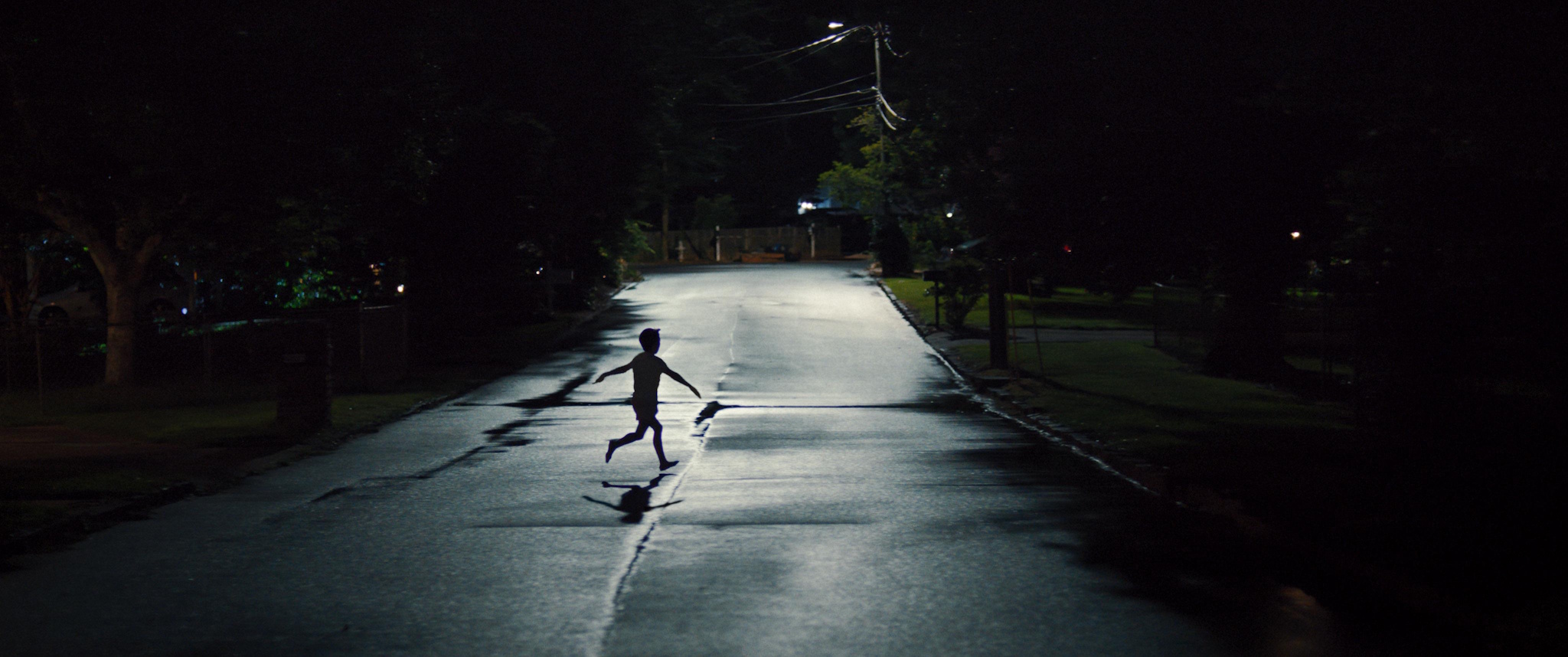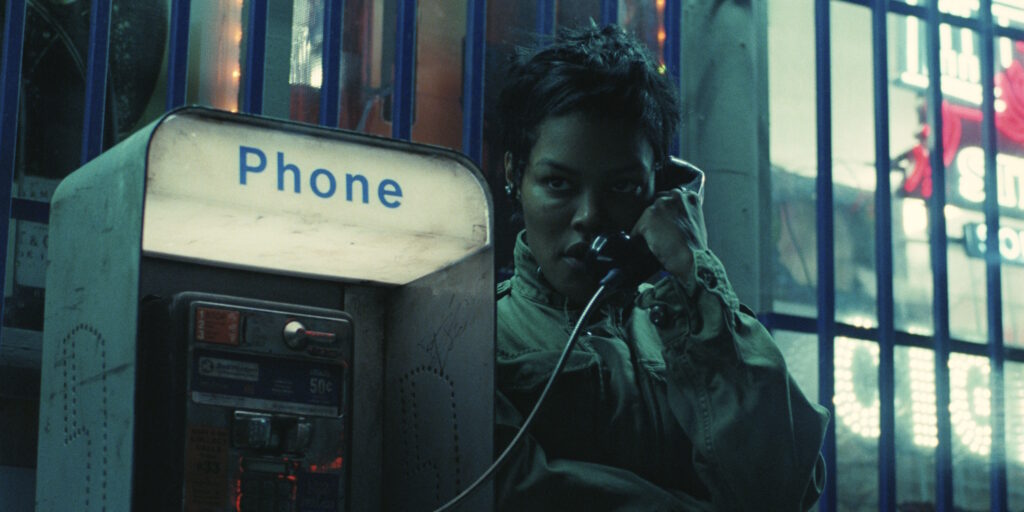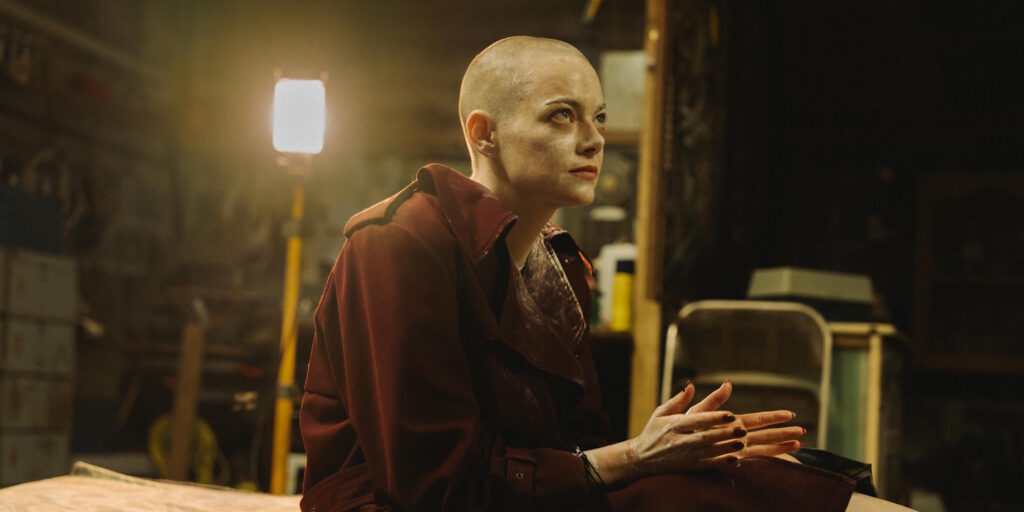When it comes to horror cinema, a compelling visual hook can be an efficient and effective means to lure an audience into a story. Horror, after all, is arguably the most psychologically primordial of genres, and a capable filmmaker can bait the trap with little more than a striking, viscerally wrong image. Think of the eerily deserted London streets in 28 Days Later (2002), an underdressed girl running panicked through the suburban dawn in It Follows (2014), or a grinning clown lurking in a storm drain in It (2017). Zach Cregger’s Weapons has a corker of an opening movement, one that plucks so deftly at our collective affinity for shivery strangeness that distributor Warner Bros. has smartly placed it front and center in the film’s winningly cagy marketing.
One night, at precisely 2:17 a.m., in the otherwise unremarkable suburban town of Maybrook, Pa., 17 elementary-age children simultaneously rise from their beds, open the front doors of their homes, and run silently into the night, vanishing without a trace. The children flee unhesitatingly, sprinting in straight lines into the enveloping darkness, their arms outstretched as if playing “airplane.” Weapons presents this sequence in an unnervingly dreamy key, the slow-motion flight of the fugitive kids soundtracked to the 1970 George Harrison ballad “Beware of Darkness.” As a young girl (Scarlett Sher) explains in voiceover, these events are even stranger than they initially appear, as the 17 disappeared children comprise almost the entirety of the same third-grade class. The only exception is Alex (Cary Cristopher), who shows up for school the following morning looking just as perturbed as his teacher, Justine (Julia Garner), at all the vacant desks.
The enigma of the children’s nocturnal departure will come to haunt Weapons, just as it will come to haunt the town of Maybrook, driving multiple characters into a series of intersecting, seemingly futile investigations. Unsurprisingly, this irrational and traumatizing loss – designed to ping American viewers’ long-numbed dread about school shootings without evoking it explicitly – leads to a range of responses in those left behind, from despair to obsession to everything-is-fine denial. However, one should banish any expectation that the sophomore feature from writer-director Cregger is primarily focused on the social and psychological fallout of an unfathomable mystery, in the fashion of Picnic at Hanging Rock (1975). This is, after all, the mind behind the gnarly, word-of-mouth horror smash Barbarian (2022), a feature that took the relatable anxiety of a double-booked Airbnb and flipped it into something utterly unexpected (not to mention shockingly gross and funny).
Cregger’s sophomore feature represents a self-assured step forward, showcasing a bolder ambition befitting a more robust cast and budget, all without neglecting the stage-illusionist flair and midnight-movie freakiness that made him an overnight genre sensation. This twisty (and twisted) tale about a grief-wracked community might begin like a particularly chilly and grounded Stephen King page-turner, but its literary pedigree is actually closer to Roald Dahl or Lemony Snicket. A fucked-up, R-rated fairy tale in which the grown-ups are variously flawed, clueless, and outright malevolent, Weapons features a generous slathering of darkly infectious humor, not to mention one of the wildest, crowd-pleasing climaxes of any horror film in the past decade. It solidifies Cregger’s status as one of the genre’s most exciting American voices – a true carnival-of-the-damned showman telling original stories in a landscape currently stifled by formulaic franchise obligation and ponderous arthouse allegory.
After its scene-setting prelude and ominous title-card drop, the film checks in on Justine roughly a month after the mass disappearance of her students. With no answers forthcoming from local or federal investigators, the town has predictability turned its ire toward the children’s teacher. Feeling hemmed in by rattling confrontations with shrieking parents, a lack of support from her soft-spoken principal, Marcus (Benedict Wong), and a spate of vandalism and harassing phone calls, Justine begins making her own, unofficial inquiries. Chiefly, this means clumsily attempting to speak with Alex, notwithstanding Marcus’ repeated insistence that she keep her distance from the boy. Both Cregger’s screenplay and Garner’s performance zig where viewers might expect it to zag: Justine appears to be a devoted and kind-hearted teacher, but when it comes to other adults, she is markedly prickly and impulsive, the sort of bad-decisions fuckup who keeps getting in her own way. Put on indefinite leave by the school, she finds solace in alcohol and cozies up to her wary ex, Lucas (Alden Ehrenreich), a uniformed police officer with a jealous fiancé (who happens to be the chief’s daughter).
Eventually, Weapons pauses Justine’s story and backtracks to follow Archer (Josh Brolin), the despondent father of one of the missing children. Archer is crashing out as only a bottled-up, middle-age American man can: He stops speaking to his wife and starts sleeping in his disappeared son’s bed, all while fumbling his way through the home-building business he barely pretends to care about anymore. He’s convinced that Justine knows something about the vanished children, but it’s the doorbell-camera footage of a few of the fleeing kids that truly triggers his amateur investigator’s itch, prompting him to scrutinize freeze-frames and sketch vectors on a town map. Just as Archer’s queries climax in unpredictably bizarre and bloody fashion, Cregger again cuts away to another character’s story, this time to hapless patrolman Lucas. Then again to similarly hapless principal Marcus. Then to a homeless addict named James (Do Revenge’s Austin Abrams). And so on.
Although less splashy than the much-ballyhooed, whiplash-inducing mid-film shift in Barbarian, the abrupt viewpoint changes that punctuate Weapons are integral to Cregger’s storytelling approach. The filmmaker was reportedly inspired by POV-hopping works such as Paul Thomas Anderson’s Altman riff Magnolia (1999) and Jennifer Egan’s Pulitzer-winning novel A Visit from the Goon Squad, but here the device is snugly tailored to accommodate genre tropes. (Atom Egoyan’s 1997 tragedy, The Sweet Hereafter, with its ensemble cast and explicit allusions to the Pied Piper legend, also seems a likely point of reference.) Lightly subverting the conventions of mystery-horror tales, Cregger unshackles his story from the dogged footsteps of a single detective character, illustrating how multiple protagonists collide slantwise with the same maddening riddle – by sheer accident as often as by deduction or intuition. Justine and Archer’s rash but earnest efforts are contrasted with the more bumbling and oblivious actions of other townsfolk, but none of these characters are prepared for the kind of storybook monster that lurks at the heart of this tale.
Formally speaking, Cregger rises to the occasion for his sophomore feature. He displays a veteran’s command of mise-en-scène, and adeptly employs shallow focus, slow pushes, and clever camera placement to devilish effect. Cinematographer Larkin Seiple (Everything Everywhere All at Once, Beef) gives the director’s images a notable upgrade compared to Barbarian, particularly in the gloomy half-light of dawn, dusk, and the danker interior spaces. However, it’s the twofer of Cregger’s admirably parsimonious screenplay and editor Joe Murphy’s canny cutting that leaves the strongest impression. In an era when so many horror films tend to overexplain themselves, Weapons respects the audience’s ability to get from Point A to B without unnecessary handholding. The intense dread and bloody-minded absurdity of the feature’s final point-of-view segment works in part because the filmmakers have been so diligently laying the groundwork for its reveals (sometimes semi-subliminally).
Weapons isn’t above cribbing from its cinematic predecessors: Horror films ranging from The Crazies (1973) to The Shining (1980) to The Blair Witch Project (1999) receive nods, alongside odder visual pulls like Brazil (1985). However, the feature is most distinctive when it reimagines well-worn horror motifs in the context of its defiantly ordinary small-town suburban setting, allowing its increasingly outlandish and off-putting strangeness to jostle distressingly up against the banality of school pick-up lines and gas-station liquor stores. There’s a low-key joke in the film’s depiction of how normie middle-class American social conventions – that peculiar blend of diffidence, confusion, and deer-in-the-headlights indecision when presented with anything weird – allow a very obvious predator to breeze past the proverbial palisade.
In contrast to some contemporary horror filmmakers, who often start with a metaphorically gravid Big Idea and struggle to build a story around it, Cregger is more focused on the medium’s dramatic, structural, and formal elements. Which is not to say that Weapons is a thematically bereft feature: It knowingly tweaks anxieties both modern and primeval, particularly the multi-directional hysteria that attends any crisis involving children. Yet the story’s vibe gradually pivots from crime-thriller grit to farcical kookiness, its ultimate tone akin to the kind of grotesque tween fiction where the dimwitted adults are incapable of recognizing (let alone confronting) the Big Bad. Archer might envision himself as the vengeful dad from Prisoners (2013), but he’s closer to the woodcutter in a fairy tale – and not one of the more effective woodcutters, either. As Dahl has taught generations of readers young and old, no one has a sense of ironic justice quite as brtual as a long-suffering child. Weapons simply takes this kid-lit adage to the sort of unhinged, jaw-dropping endpoint that would have tickled George Romero.
Weapons is now playing in theaters everywhere.




